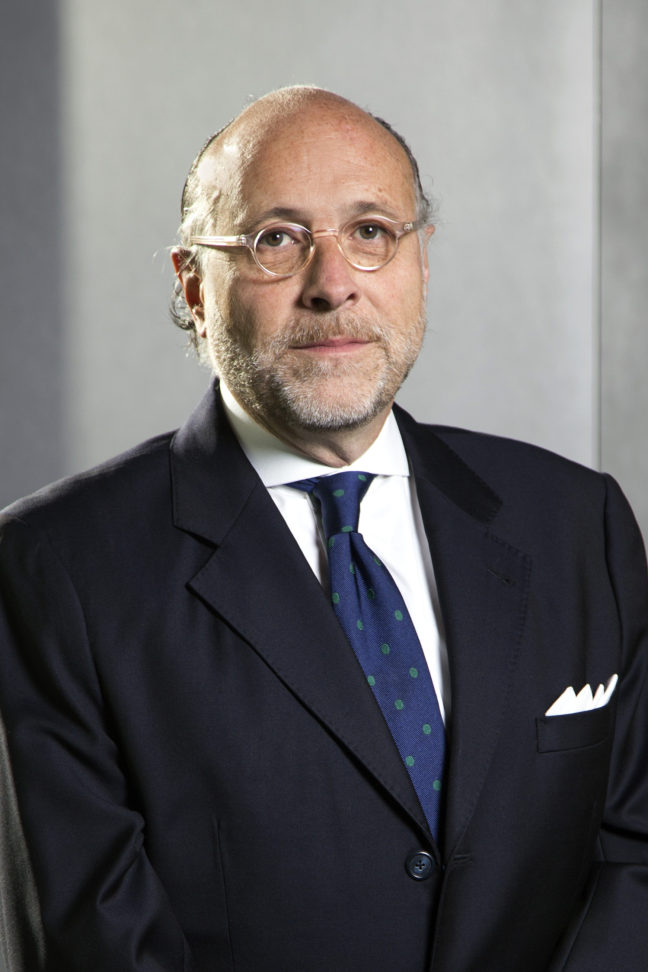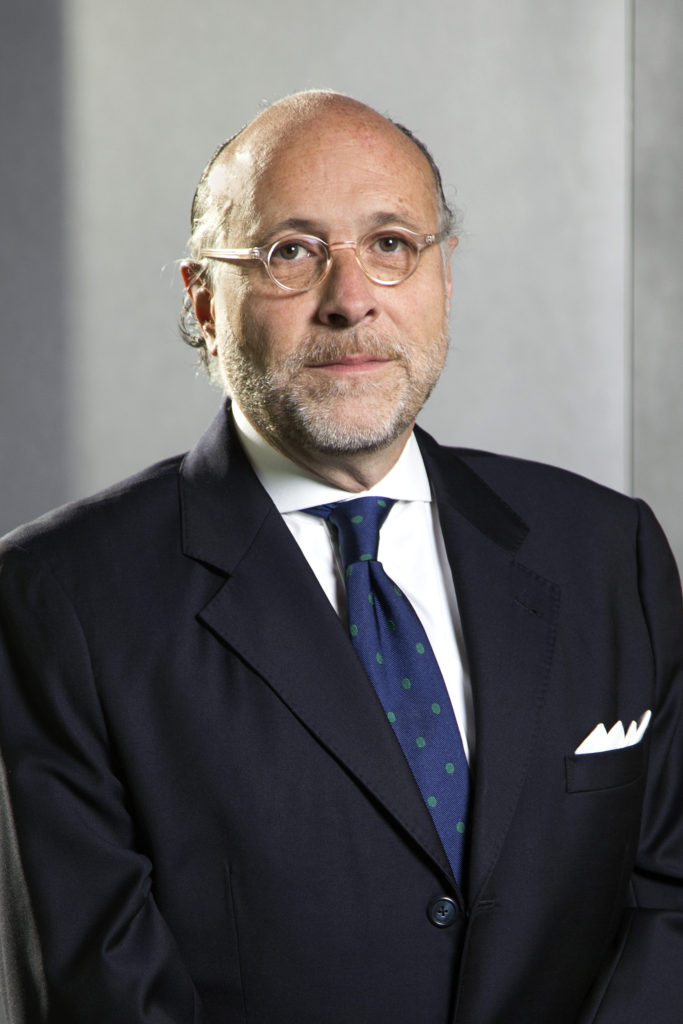Rules and Advantages of using Insurance for M&A Transactions
By Thomaz Kastrup, Partner at Mattos Filho.

Transactions involving purchase and sale, incorporations and mergers, generically denominated as mergers and acquisitions transactions (“M&A”), encompass a variety of different structures that, as a rule, involve the transfer of a set of rights and obligations between buyers and sellers, where the risks – despite the sincere efforts of the due diligence teams involved – are not entirely known by the buyers when the transaction contracts (“Contracts”) are executed.
In fact, given the uncertain nature of the business activities, it is possible that even the sellers are not aware of all the factors and events, past and present, which can materially impact the futures of their companies.
Therefore, in order to become predictable, these Contracts use representations and warranties (“R&W”) clauses. A useful mechanism for the sharing of risks inherent to M&A deals, the R&W allocate such risks to those best prepared to support them. In effect, more than in other sections of the Contracts, it is in the R&W that value in M&A transactions can be created or destroyed.
In practice, these kinds of clauses are structured in the form of statements about the company being acquired (the “Target”) which are made by seller and that work as a set of assumptions about the transaction’s economic conditions. In case of any incorrectness or inaccuracy of such clauses, buyer will be allowed to seek for the pre-established contractual remedies.
In this stage, the possible measures/remedies vary as wildly as M&A structures themselves, although the following are almost always included in the Contracts: (i) indemnity assurances through which the seller is obligated to reimburse the buyer for damages resulting from the violation of the R&W in question; and (ii) the contracting of escrow account administration services, through which part of the funds necessary for the completion of the transaction are unavailable to the parties and under the management of an independent banking institution that will either return them to the buyer – to the extent the R&W are not complied with – or, if they are fully observed, deliver them to the seller at the end of the term agreed to in the relevant Contract.
Representations and Warranties Insurance
The main purpose of the Representations and Warranties insurance (“R&W Insurance”) – the object of this text – is to ensure compliance with the R&W. Such policies can be taken out by either the buyer or the seller side. As an alternative to the remedies above, R&W Insurance presents a series of advantages, namely:
- during pre-closing, it reduces the distress between buyers and sellers regarding the representations and warranties to the extent the burdens resulting from their violation are supported by the insurer, an independent third party;
- during post-closing, if the buyer and seller remain in contact, whether because it was not a full sale, or because the seller continues to participate in the Target’s management, distress is avoided as any R&W violations will be dealt with through the insurer and not between the parties;
- speeds up indemnity payments, mainly because these payments made through insurance are typically less susceptible to litigation than if they were made directly between the parties;
- buyers are able to access better financing conditions to the extent that the Target’s activity is subjected to less unexpected events;
- ensures that R&W violations are indemnified regardless of the seller’s financial condition;
- allows buyers and sellers to cut ties faster – whether through indemnity agreements or the establishment of escrow accounts, after closing the seller is typically prohibited from freely accessing the funds resulting from the transaction; this situation can be especially inconvenient for investment funds with defined duration term or to any party wishing to use such funds for other purposes; and
- with the trend of decrease of the interest rates, depending on the seller’s capital cost, taking on a R&W Insurance policy can be more financially advantageous (with the resulting improvement of the RoR of other investments) compared to keeping large sums deposited in an escrow account.
Created in 1997 in the US, R&W Insurance took a while to gain market, but it has grown significantly in recent years. In 2017, for example, 34% of the M&A transactions with values between US$ 25 million and US$ 1 billion counted with R&W Insurance, while the corresponding figure for 2016 was 20%.
Still in 2017, R&W Insurance policies were taken out in 75% of M&A transactions where private equity funds figured as buyers [1].
In addition to the larger market penetration, over time, R&W Insurance products have become more flexible. In principle, insurers offering these products were quite reticent when the policy holder did not maintain part of the risk, in such a manner that R&W Insurance would cover only the excess of the limits of the indemnity agreements executed by seller. However, in the US it is currently possible to find policies without such limitations, although the premiums for these products are, of course, higher.
In the US, R&W Insurance premiums vary, on average, between 3% to 8% of the insured capital (which is proportional to the value of the transaction), which can make it less attractive for smaller transactions due to the high subscription costs, especially related to qualitative analyses carried out by insurers on the due diligence processes carried out by buyers [2].
In Brazil
The products available in Brazil normally cover: (i) the amounts payable to buyers as penalties or indemnities under the terms of the Contracts entered into with the sellers due to violation of the R&W; and (ii) the defense costs relating to suits filed by third parties as a result of R&W violations.
The following are exclusions and events of loss of rights typical of these kinds of insurance products:
- R&W explicitly identified by the insurer as not being covered or only partially covered (in the extension of such non-cover);
- all R&W violations, or facts that could reasonably result in R&W violations, over which the buyer either had knowledge of or should have had knowledge of, when signing or closing the transaction, as the case may be, and that were not disclosed to the insurer before such dates;
- fines and penalties of a criminal nature;
- non-compliance by the insured (buyer) of its obligations, as established in the Contract; and
- negligence by the insured (buyer) in immediately communicating to the insurer any R&W violation or fact that could reasonably result in a R&W violation or any aggravation in the risk of a R&W violation.
The first product of this kind was only marketed in Brazil in the 2014 year by AIG Seguros Brasil S.A. With a product solely available for the buyer side and with a capped cover of US$ 25 million (per transaction) [3], it is clear that the R&W Insurance market in this country still lacks the diversity and flexibility of the North American market. Even so, according to Marsh Corretora de Seguros Ltda., R&W Insurance demand in Brazil over the first half of the 2018 year grew by 35%, compared to the same period in 2017 [4].
Conclusion
Beyond the long term trends (Brazil has been seeing a significant increase in the volume of M&A over the past two decades[5]), the imminent approval of an agenda of legislative reform and the start of a new cycle of prosperity in the country are setting the expectation for a rapid increase in the volume of M&A transactions and, consequently, of contracting of R&W Insurance.
Bearing in mind that the national market for this kind
of insurance remains unexploited, this favorable economic scenario represents a
unique growth opportunity for insurers. Meanwhile, for those involved in
M&A deals (especially lawyers), the handling of this product will represent
an important competitive edge, to the extent it will undoubtedly add
significant value to the transactions they deal with, as already happens in
more mature markets.
[1] Seen on April 23 2019, at 9:00 pm: https://www.aon.com/m-and-a-riskinreview/index.html
[2] Seen on April 23 2019, at 9:10 pm: https://www.mofo.com/resources/news/representation-and-warranties-insurance-a-new-strategic-negotiation-tool-for-dealmakers.html
[3] Seen on April 23 2019, at 9:30 pm: https://www.aig.com.br/seguros/seguro-m-and-a
[4] Estadão. Procura por seguro para fusões e aquisições aumenta 35% no Brasil. Available at: https://economia.estadao.com.br/blogs/coluna-do-broad/procura-por-seguro-para-fusoes-e-aquisicoes-aumenta-35-no-brasil/.
[5] https://www.pwc.com.br/pt/estudos/servicos/assessoria-tributaria-societaria/fusoes-aquisicoes/2018/fusoes-e-aquisicoes-no-brasil-dezembro-2018.htmlhttps://www.pwc.com.br/pt/estudos/servicos/assessoria-tributaria-societaria/fusoes-aquisicoes/2018/fusoes-e-aquisicoes-no-brasil-dezembro-2018.html
Regras e vantagens do seguro para operações de M&A
Por Thomaz Kastrup, sócio do escritório Mattos Filho.
As operações de compra e venda, incorporação, fusão de empresas, dentre outras, genericamente denominadas fusões e aquisições (mergers and acquisitions – “M&A”), abrangem uma variedade de estruturas diferentes que, em regra, importam na transferência de um complexo de direitos e obrigações entre alienantes e adquirentes, cujos riscos – apesar dos esforços sinceros das equipes de due diligence – não são inteiramente conhecidos pelos adquirentes no momento da assinatura dos contratosda operação (“Contratos”).
Em verdade, dada a natureza incerta das atividades empresariais, é possível que nem mesmo o vendedor tenha ciência dos fatores e eventos, presentes ou pretéritos, passíveis de impactar materialmente seu negócio no futuro.
Assim, a fim de se tornarem mais previsíveis, os Contratos se valem das cláusulas de declarações e garantias (representantions and warranties – “R&W”). Mecanismo hábil à repartição dos riscos inerentes às operações de M&A, por meio das R&W é possível aloca-los àqueles melhor equipados para suportá-los. Com efeito, mais do que em outras seções dos Contratos, em meio às R&Ws pode-se criar ou destruir valor nas operações de M&A.
Na prática, as cláusulas desse tipo são estruturadas na forma de assertivas sobre a empresa a ser adquirira (“Target”) feitas pelo vendedor e funcionam como um conjunto de premissas das condições econômicas da transação, cuja eventual falsidade franqueia ao comprador acionar os remédios contratuais preestabelecidos.
Nesse passo, as medidas/remédios possíveis são tão variados quanto as estruturas de M&A, dentre as quais, no entanto, destacam-se pela quase onipresença: (i) os acordos de indenidade firmados nos Contratos, por meio dos quais o vendedor se obriga a ressarcir o comprador dos prejuízos decorrentes da violação de determinada R&W; e (ii) a contratação de serviços de administração de conta vinculada (escrow account), por meio dos quais parte dos recursos necessários à concretização da operação ficam indisponíveis às partes e sob a gestão de instituição bancária independente, que os devolverá ao comprador na medida em que as R&W venham a ser descumpridas, ou os entregará ao vendedor após o decurso de prazo contratualmente determinado dede que não haja violação das mesmas.
Seguro de Representantions and Warranties
O seguro de declarações e garantias (“Seguro de R&W”) – objeto deste texto – tem por finalidade principal garantir o cumprimento das R&W, podendo ser contratado tanto pelo comprador (buyer side), quanto pelo vendedor (seller side). Como alternativa aos remédios acima, o Seguro de R&W apresenta uma série de vantagens:
- no pré-closing, reduz o desgaste negocial entre comprador e vendedor acerca das declarações e garantias, na medida em que os ônus decorrentes de sua violação serão arcados por seguradora, terceira à relação;
- no pós-closing, caso o vendedor e o comprador mantenham relações, seja porque a venda não foi integral, seja porque o vendedor compõe a administração da Target, evita o desgaste, na medida em que quaisquer violações às R&W serão tratadas com a seguradora, e não entre as partes;
- agiliza o pagamento das indenizações, em grande medida porque o pagamento das indenizações por meio de seguro tem menor litigiosidade do que por meio de cobrança direta entre as partes;
- viabiliza melhores condições de financiamento pelo comprador, na medida em que a atividade da Target fica sujeita a menos imprevistos;
- assegura que eventuais violações das R&W sejam indenizadas a despeito da situação financeira do vendedor;
- permite que comprador e vendedor se desvinculem mais rapidamente: seja por meio de acordos de indenidade, ou do estabelecimento de contas vinculadas, a vendedora, após o closing, não pode/deve livremente dispor dos recursos decorrentes da venda, o que pode ser especialmente inconveniente para fundos de investimento com prazo determinado de duração ou qualquer um que deseje destinar os recursos para outra finalidade; e
- com a tendência de queda dos juros (taxa básica), a depender do custo de capital do vendedor, a contratação de Seguro de R&W pode vir a ser financeiramente mais vantajosa (com a consequente melhora na taxa interna de retorno do investimento) do que a manutenção de vultuosas quantias em conta vinculada.
Criado em 1997 nos Estados Unidos, o Seguro de R&W demorou a se difundir, mas, nos últimos anos, tem se expandido rapidamente. Vinte anos depois, em 2017, dentre as operações de M&A ocorridas nos Estados Unidos com valor compreendido entre US$ 25 milhões e US$ 1bilhão, 34% contaram com a contratação de Seguro de R&W, contra somente 20% em 2016.
Ainda em 2017, houve contratação de Seguro de R&W em 75% dos M&A’s nos quais fundos de private equity atuaram como compradores[1].
Além da maior penetração no mercado, com o passar do tempo os produtos de Seguros de R&W têm se tornado mais flexíveis. Em princípio, as seguradoras que operavam esse tipo de produto eram muito reticentes em segurar as R&W em operações nas quais o segurado não retivesse parte do risco; as coberturas de R&W eram feitas somente em excesso aos limites dos compromissos de indenidade assumidos pelo vendedor. Hoje, nos Estados Unidos, entretanto, já é possível contratar coberturas desse tipo mediante proporcional majoração no valor do prêmio a ser pago, é claro.
No mercado norte-americano, os prêmios dos Seguros de R&W variam, em média, entre 3% a 8% do capital segurado (que é proporcional ao valor da operação), o que pode torná-lo pouco vantajoso para operações menores devido aos elevados custos de subscrição, mormente relacionados às analises qualitativas conduzidas pelas seguradoras com relação aos processos de due diligence realizados pelos compradores[2].
No Brasil
Os produtos disponíveis no mercado brasileiro, normalmente, cobrem: (i) os valores a que os compradores façam jus a título de multa ou indenização, nos termos dos Contratos firmados com o vendedor, em virtude da violação às R&W; e (ii) os custos de defesa relacionados a ações ajuizadas por terceiros em decorrência da violação das R&W.
Em tempo, são exclusões e hipóteses de perda de direito típicas de produtos de seguro desse tipo:
- as R&W expressamente identificadas pela seguradora como não cobertas ou como parcialmente cobertas (na extensão de sua não cobertura);
- todas as violações de R&W, ou fatos que possam razoavelmente resultar em violações de R&W, sobre as quais o comprador tinha conhecimento ou deveria ter conhecimento no momento do signing ou closing, conforme o caso, e que não tenham sido informadas à seguradora antes dessas datas;
- multas e penalidades de natureza criminal;
- descumprimento pelo segurado (comprador) de suas obrigações, conforme estabelecidas nos Contratos; e
- desídia pelo segurado (comprador) em comunicar à seguradora imediatamente acerca de qualquer violação das R&W ou fato que razoavelmente possa acarretar uma violação das R&W ou agravamento desse risco.
O primeiro produto do tipo somente veio a ser lançado no país em 2014 pela AIG Seguros Brasil S.A. Sendo comercializado somente na modalidade buyer side e com valor máximo de coberturas de 25 milhões de dólares (por operação)[3], o mercado brasileiro de Seguro de R&W ainda não possui a diversidade e flexibilidade do norte-americano. Apesar disso, segundo a Marsh Corretora de Seguros Ltda., entre os meses de janeiro a junho de 2018, a demanda pelo Seguro de R&W no Brasil cresceu 35%, em comparação com o mesmo período de 2017[4].
Conclusão
Para além das tendências de longo prazo (o Brasil vem experimentando um aumento significativo no volume de M&As nas últimas duas décadas[5]), na iminência da aprovação de uma agenda legislativa reformista e do início de um novo ciclo de prosperidade no país, a expectativa é que haja um rápido aumento no volume de operações de M&A e, consequentemente, de contratações de Seguro de R&W.
Em vista do quão
inexplorado é o mercado nacional de seguros desse tipo, essa conjuntura
econômica favorável representa uma oportunidade única de expansão das carteiras
das seguradoras. Já para os operadores de M&A (especialmente os advogados),
o manuseio desse produto representará relevante diferencial competitivo, na
medida em que certamente agregará imenso valor às operações por eles
conduzidas, tal como já ocorre em mercados mais maduros.
[1] Visto em 23 de abril de 2019, às 21:00: https://www.aon.com/m-and-a-riskinreview/index.html
[2] Visto em 23 de abril de 2019, às 21:10: https://www.mofo.com/resources/news/representation-and-warranties-insurance-a-new-strategic-negotiation-tool-for-dealmakers.html
[3] Visto em 24 de abril de 2019, às 21:30: https://www.aig.com.br/seguros/seguro-m-and-a
[4] Estadão. Procura por seguro para fusões e aquisições aumenta 35% no Brasil. Disponível em: https://economia.estadao.com.br/blogs/coluna-do-broad/procura-por-seguro-para-fusoes-e-aquisicoes-aumenta-35-no-brasil/.
[5] https://www.pwc.com.br/pt/estudos/servicos/assessoria-tributaria-societaria/fusoes-aquisicoes/2018/fusoes-e-aquisicoes-no-brasil-dezembro-2018.htmlhttps://www.pwc.com.br/pt/estudos/servicos/assessoria-tributaria-societaria/fusoes-aquisicoes/2018/fusoes-e-aquisicoes-no-brasil-dezembro-2018.html








